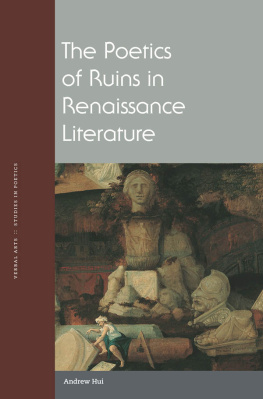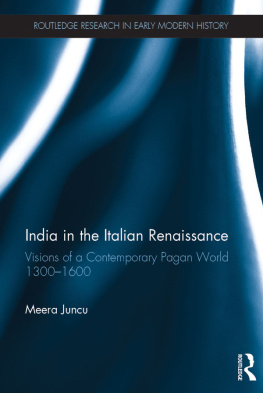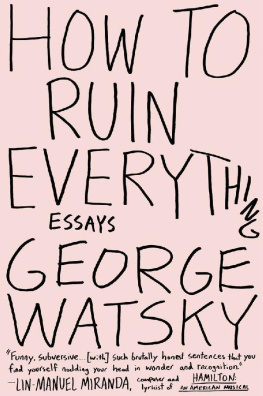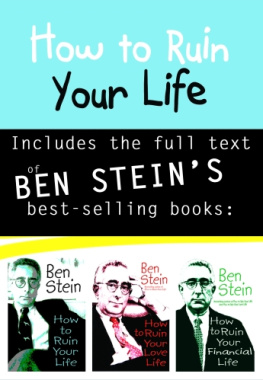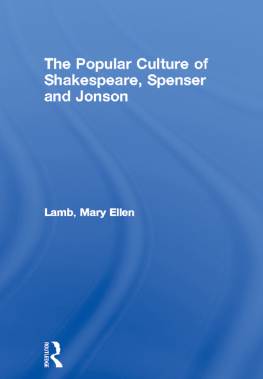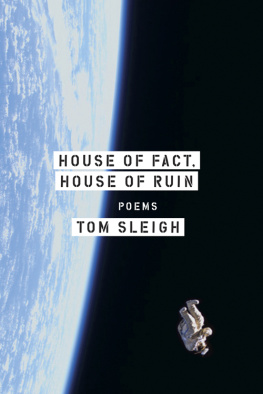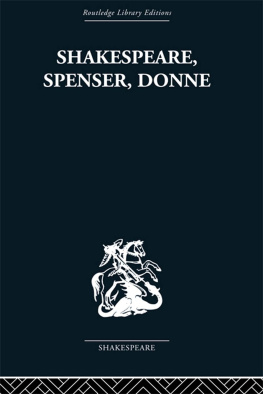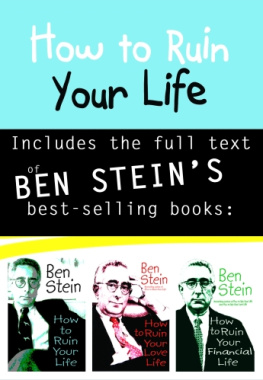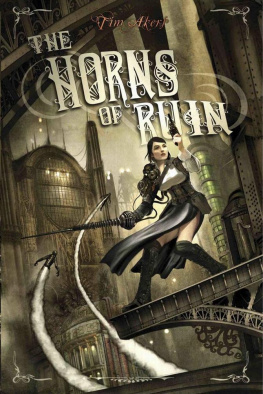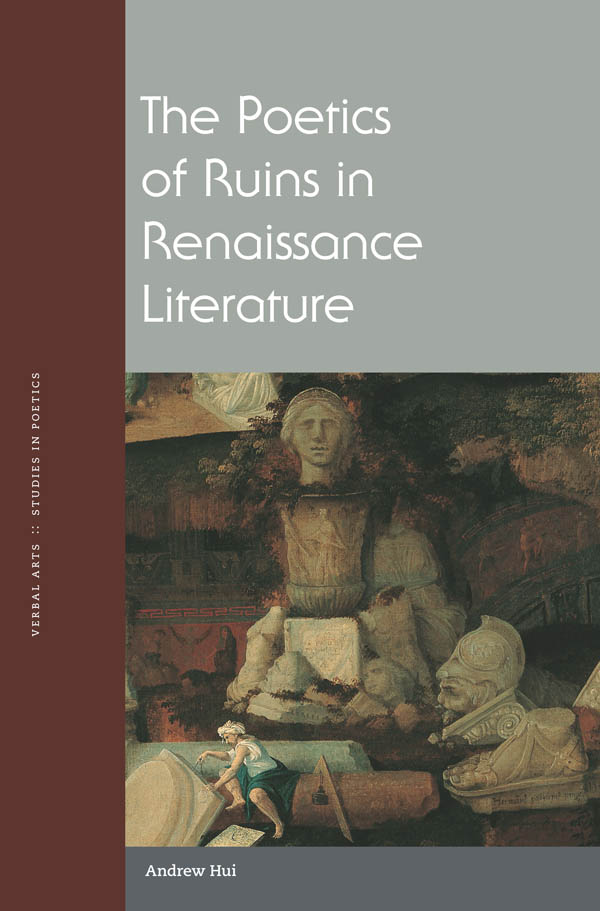The Poetics of Ruins in Renaissance Literature
Andrew Hui
Fordham University Press New York 2016

This book is made possible by a collaborative grant from the Andrew W. Mellon foundation.
This publication is made possible in part from the Barr Ferree Foundation for Publications, Department of Art and Archaeology, Princeton University, and a subvention grant from Yale-NUS College, Singapore.
Copyright 2016 Fordham University Press
All rights reserved. No part of this publication may be reproduced, stored in a retrieval system, or transmitted in any form or by any meanselectronic, mechanical, photocopy, recording, or any otherexcept for brief quotations in printed reviews, without the prior permission of the publisher.
Fordham University Press has no responsibility for the persistence or accuracy of URLs for external or third-party Internet websites referred to in this publication and does not guarantee that any content on such websites is, or will remain, accurate or appropriate.
Fordham University Press also publishes its books in a variety of electronic formats. Some content that appears in print may not be available in electronic books.
Visit us online at www.fordhampress.com.
Library of Congress Cataloging-in-Publication Data available online at http://catalog.loc.gov.
Printed in the United States of America
19 18 17 5 4 3 2 1
First edition
To my mother, father, and wife
Contents
A Japanese Friend
Ex ungue leonem
The lion from its claws
Latin commonplace
One summer. Rome. After a morning of Italian lessons, a Japanese friend invited me to a walk in the Forum. As we ambled between the Temple of Saturn and the Arch of Septimus Severus, she turned to me and asked, Andrew, why are there ruins here? Why are they not rebuilt or just demolished? This question perplexed me, for it was a moment of cultural dissonance for me as much as it was for her. Hailing from the hypermodern metropolis of Tokyo, she was unused to seeing the monumental detritus of antiquity occupying prime real estate in the city center. Instead, in the heart of her capital, nestled within innumerable twentieth-century high-rises, is a fully functioning imperial palace, the residence for a royal line that claims to be the longest continuing in the world. Her query unsettled a large archive of cultural assumptions I had held: from the Tower of Babel to the Fall of Troy, from Pausaniass records of abandoned Greek temples to the Old English elegy The Ruin, from the prints of Piranesi to the paintings of Hubert Robert, from Wordsworths Tintern Abbey to W. G. Sebalds On the Natural History of Destruction, Western culture has always expressed its fascination with the physical past through its monuments and ruins. (I discuss some East Asian examples in the epilogue.) I returned to her question again and again over the years, for it made me wonder about Europes relationship to classical culture: Why is it in love with the past as past?
This book is a long answer to her question. The ruins are still there in the Roman Forum because they are the invention of the Renaissance. The Renaissance was, if I may say so, the Ruin-naissance, the birth of the ruin as a distinct category of cultural discourse that became an inspirational force in the poetic imagination, artistic expression, and historical inquiry of fifteenth- and sixteenth-century Europe. The ruin functions as a privileged cipher or master topos that marks the rupture between the world of the humanists and the world of antiquity. The discourse of Roman ruins coincides with a renewed interest in the classical past: architects used ancient buildings as models for their own construction; antiquarians systematically collected their remains; artists illustrated the desolate urban views as exercises in spatial and historical perspective; philologists sought to understand the past through inscriptions on buildings and fragments of manuscripts.
And poets? They used ruins as a way to think about the production and reception of the texts of the ancients as well as their own work. Confronted with the monumental detritus of antiquity, Renaissance writers hoped to craft a more enduring artifact. And faced with the contingency of cultural survival, they reached back to classical literature for an answer. Already in Homer, Simonides, and Pindar we see the striving for undying songs, but early modern authors knew their Latin texts best: Ovid at the end of the Metamorphoses boasts, And now my work is done, which neither the wrath of Jove, nor fire, nor sword, nor the gnawing tooth of time shall ever be able to undo, iamque opus exegi, quod nec Iovis ira nec ignis / nec poterit ferrum nec edax abolere vetustas (15.87172). Virgil in the Aeneid promises to Nisus and Euryalus, If my poetry has any power, no day shall ever blot you from the memory of time, si quid mea carmina possunt, / nulla dies umquam memori vos eximet aevo (9.44647). Horace, perhaps most memorably, proclaims, I have constructed a monument more lasting than bronze, more lofty than the regal structure of the pyramids, Exegi monumentum aere perennius, / regalique situ pyramidum altius (Ode 3.30).
This bid for immortality became a favorite topos of humanist poetry. Spenser at the end of the Shepheards Calendar similarly invokes:
Horace of his Odes a work though ful indede of great
wit and learning, yet of no so great weight and
importaunce boldly sayth.
Exegi monimentum aere perennius,
Quod nec imber nec aquilo vorax etc.
As summations of the poets craft, the hope that is enshrined in these lofty lines embodies their highest ambitions. We also find this dynamic in post-Augustan Roman authors. Lucan writes, The poet snatches all things from destruction and gives to mortal men immortality. Posterity shall read my verse and your deeds; our Pharsalia shall live on, and no age will ever doom us to oblivion, omnia fato / eripis et populis donas mortalibus aevum /... venturi me teque legent; Pharsalia nostra / vivet, et a nullo tenebris damnabimur aevo (9.98081, 98586). So too Statius at the end of his epic: My Thebaid, on whom I have spent twelve wakeful years, will you long endure and be read when your master is gone?,

